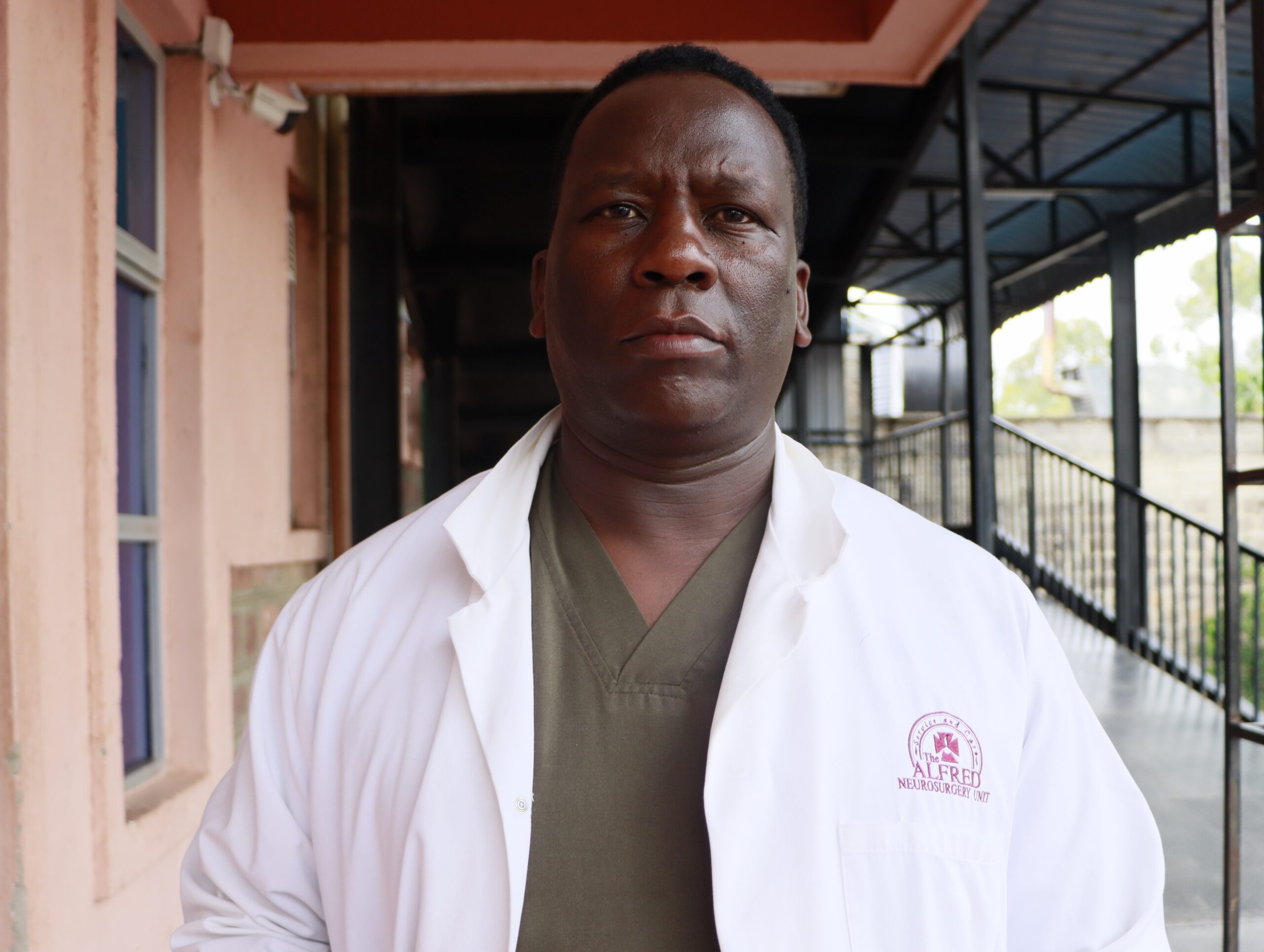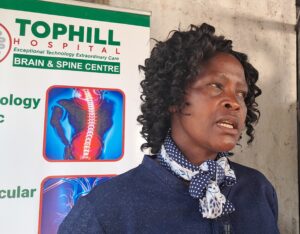Dr. Florentius Koech Highlights on the Growing Brain and Spine Trauma Cases

The rise in brain and spine injuries due to accidents, particularly motorcycle-related trauma, continues to be a major health concern in the country, according to Dr. Florentius Koech, Lead Surgeon at Tophill Hospital Eldoret. Dr. Koech, who has treated numerous cases over the years, points out that these injuries, alongside infections like tuberculosis and the increasing occurrence of tumors, have placed a significant strain on the healthcare system.
“Trauma, especially from motorcycle accidents, remains the leading cause of brain and spine injuries in our region. Unfortunately, despite the high-speed risks, many riders neglect to wear helmets, contributing to the alarming number of head and spine injuries. We are seeing this more than ever,” says Dr. Koech. “We perform surgery on about a third of the trauma cases we receive.”
The prevalence of tuberculosis (TB), particularly TB affecting the spine and brain, has also been on the rise. Infections, once considered rare, have become more common in recent years. “Tuberculosis of the spine and brain is now one of the leading causes of spine and brain conditions that require surgical intervention. We need more awareness about how these infections are transmitted and how they can be prevented,” he added.
Tumors, both in the brain and spine, are also increasingly being diagnosed. According to Dr. Koech, this rise is linked to factors such as environmental toxins and diet. “We are seeing more tumors than ever before, and environmental factors, such as exposure to pesticides, are often to blame. It is essential to be mindful of what we eat and how we handle such substances,” he warns.
Additionally, Dr. Koech emphasizes the importance of addressing degenerative spine conditions, commonly caused by wear and tear of the discs. With people working long hours at desks, poor posture has contributed to the growing number of patients suffering from back problems. “The way we sit, especially in offices, has a direct impact on our spine health. It’s vital to invest in ergonomic chairs and adopt proper sitting posture to prevent long-term damage,” says Dr. Koech.
As the country continues to face these challenges, Dr. Koech advocates for preventive measures that can significantly reduce the burden on the healthcare system. These include improving road safety regulations, such as mandatory helmet laws for motorcyclists, and implementing public education campaigns about safe driving practices.
“Motorcyclists must be properly licensed, and speed limits should be enforced to prevent accidents. Public awareness campaigns are essential, especially regarding the importance of wearing helmets. This simple precaution can save lives,” he stressed.
Dr. Koech also calls for workplace health initiatives to educate office workers on the importance of proper sitting posture and safe lifting techniques. “Bending incorrectly when lifting heavy objects is a common cause of spinal injuries. Awareness and education can make a big difference in preventing these injuries.”
In the fight against cancer, Dr. Koech underscores the need for a collective effort to reduce exposure to harmful chemicals and promote healthier eating habits. “Our lifestyle choices play a significant role in preventing conditions like tumors. We must all be mindful of the risks associated with pesticides, processed foods, and environmental toxins,” he said.
Tophill Hospital, where Dr. Koech practices, continues to be at the forefront of treating these conditions, performing cutting-edge surgeries for both brain and spine trauma cases. However, the hospital is also actively involved in outreach programs, working to raise awareness in the community about the importance of prevention.
As the country faces these growing health challenges, Dr. Koech urges both individuals and policymakers to take action. “Prevention is always better than cure. By adopting safer lifestyles and making informed choices, we can reduce the incidence of brain and spine injuries, infections, tumors, and degenerative conditions, ultimately improving the quality of life for many.”
The message is clear: education, awareness, and preventative actions are key to reducing the impact of these conditions and ensuring a healthier future for all.








